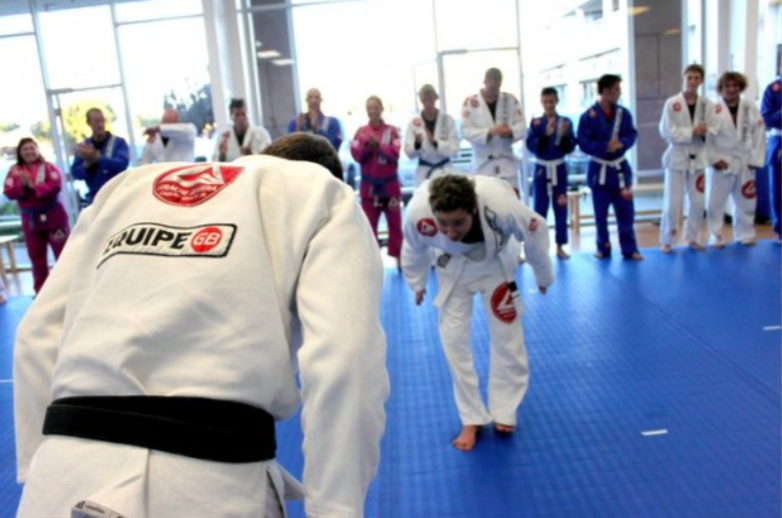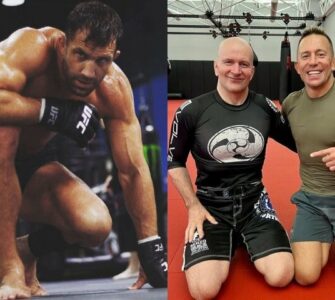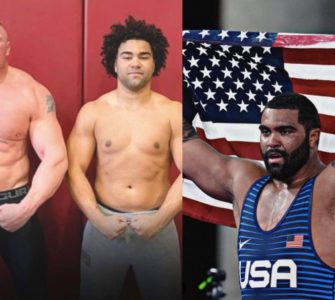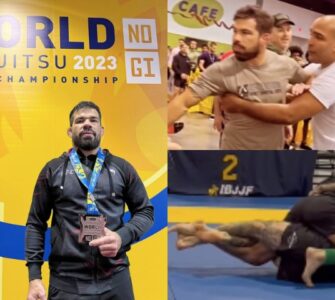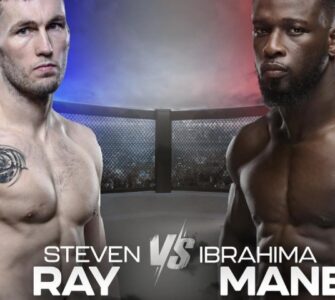The bow. In its modern display, it can be a simple handshake or fist bump. This simple action of sportsmanship can also have a profound influence on your mindset when done in the spirit of the samurai.
As a boy growing up in Japan, I was raised with a very traditional martial art called kendo. Kendo means way of the sword and although a modern sport, it has roots in samurai culture. Since then, my path in martial arts has brought me to America a beautiful melting pot of ideas and influences. In 2002 I choose Brazilian jiu jitsu as my path. While many traditional aspects of Brazilian jiu jitsu have changed and rightfully adapted, I want to share the seeds of why certain customs were originally developed. Samurai culture heavily influenced all aspects of Japanese society and arts even to this day.
1) Samurai believed the bow is a form of respect for your opponent. This respect flows from your heart with honesty; not just a simple contortion of the body. Like a smile, we can have a genuine smile or one that is forced. Beneath the surface; this gesture of respect also has a function for BJJ especially. If your game starts and ends with this genuine respect; you are more likely to flow and be expansive. If your heart doesn’t flow forward and you demonize your opponent; you are probably operating from fear or ego that have a contracting nature. On a historical note, if one samurai took another’s life on the battlefield, they would sing a death poem and the dying samurai would sing back the poem. Samurai believed the meaning and respect for life could be found in death; in doing so find a deeper relationship to something bigger than oneself whatever that may be.
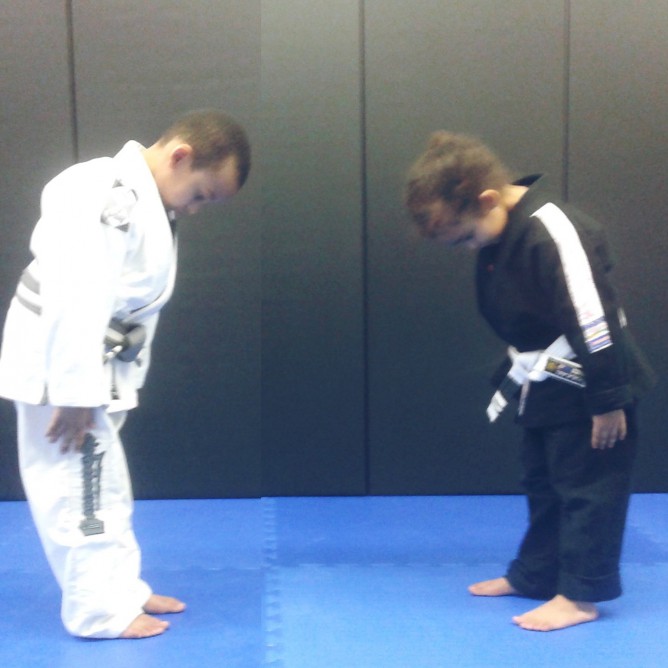
2) A feeling of appreciation comes from a genuine bow that lends itself to being open to new experiences and learning. One important concept in learning BJJ is being open to new experiences versus rejecting or avoiding them. As you learn to appreciate your opponent, you embrace all that may be thrown at you as an experience to be learned versus our natural reactive tendencies. Traditionally, as you bow, we expose the vital parts of the neck; putting your neck on the line with faith in your training. As Carlos Gracie said, “in jiu jitsu there is no winning or losing, only learning”. As you start and end with a genuine bow, we can appreciate a loss as a future investment in our learning.
3) A deep sense of humility can be felt as you bow from the heart. A Japanese interpretation for the source of the bow says, “when a rice plant comes to fruition its head touches the ground”. When we get stronger we are encouraged to use that strength to nourish those around us rather than push them down. The paradox is; no one comes to learn martial arts to be weak. However with true strength attained from years of training, you learn to value how precious life is. While the days of using chokes to kill has long past we can understand a deep sense of humility and faith in humanity. While the goal of competitive BJJ is to not get submitted; tapping can reinforce this humility and also a faith that your opponent is a decent human being who won’t kill or injure you unnecessarily We don’t have to wait until our moment of death to attain this humility in an environment that is respectful.
Anyone who has practiced Brazilian Jiu Jitsu can attest; it is much more than fun. What may have begun as a new hobby, has the ability to shift our perspective and create life long bonds. While the modern approach to BJJ is innovative and now worldwide its facinating to take a step back and look at the origins and philosophies of the samurai mindset that influenced all Japanese martial arts. While I am in no way perfect, this mindset is also my own reminder to follow a code of conduct that I cherish and don’t want to be lost in the ages of history.
Bio:
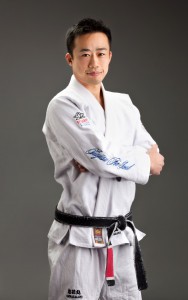 As a young boy in Japan, Nobuo Yagai was raised in the traditional art of kendo. Heavily influenced by the way of the samurai, his path in martial arts has taken him around the world and in 2002 the life of BJJ. Since then, he has forged life long friendships on the world stage of competition with some of the best of the best. He currently operates Way of Jiu Jitsu in Denver, Colorado and is writing a unique book on BJJ. Through the famous stories of samurai, origins of BJJ, and his own martial arts journey, Rigan Machado’s only Japanese black belt, Nobuo Yagai will challenge you to take your BJJ off the mat and infuse ancient wisdom into your own practice. Way of Jiu Jitsu is more than just a book for martial artists, but for anyone who dares to make more than a hobby out of life.
As a young boy in Japan, Nobuo Yagai was raised in the traditional art of kendo. Heavily influenced by the way of the samurai, his path in martial arts has taken him around the world and in 2002 the life of BJJ. Since then, he has forged life long friendships on the world stage of competition with some of the best of the best. He currently operates Way of Jiu Jitsu in Denver, Colorado and is writing a unique book on BJJ. Through the famous stories of samurai, origins of BJJ, and his own martial arts journey, Rigan Machado’s only Japanese black belt, Nobuo Yagai will challenge you to take your BJJ off the mat and infuse ancient wisdom into your own practice. Way of Jiu Jitsu is more than just a book for martial artists, but for anyone who dares to make more than a hobby out of life.
Nobuo Yagai

